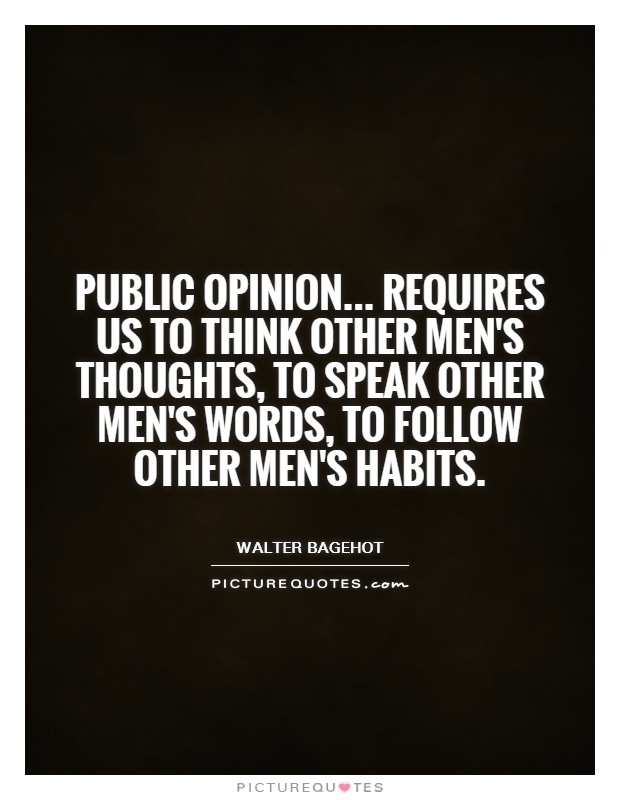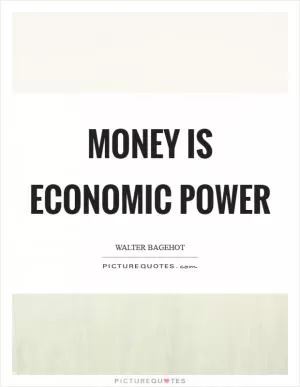Public opinion... requires us to think other men's thoughts, to speak other men's words, to follow other men's habits

Public opinion... requires us to think other men's thoughts, to speak other men's words, to follow other men's habits
Walter Bagehot, a prominent British journalist and economist, was known for his insightful observations on public opinion and its influence on society. In his work, Bagehot argued that public opinion often shapes our thoughts, words, and actions, leading us to conform to the beliefs and behaviors of others. He believed that individuals are often swayed by the prevailing attitudes and values of the majority, causing them to adopt the opinions and perspectives of their peers.Bagehot's assertion that public opinion requires us to think other men's thoughts, speak other men's words, and follow other men's habits speaks to the power of social influence in shaping our behavior. In a society where conformity is often valued and rewarded, individuals may feel pressure to conform to the opinions and behaviors of the majority in order to fit in and be accepted. This can lead to a lack of independent thinking and critical analysis, as individuals may simply parrot the beliefs and ideas of others without questioning or challenging them.
Furthermore, Bagehot's observation highlights the role of social norms and expectations in shaping our behavior. In a world where conformity is often equated with success and acceptance, individuals may feel compelled to conform to the prevailing attitudes and values of society in order to avoid social ostracism or rejection. This can lead to a homogenization of thought and behavior, as individuals may suppress their own unique perspectives and ideas in order to conform to the expectations of others.
However, Bagehot also recognized the dangers of blindly following public opinion without critical thought or analysis. He believed that individuals should strive to think independently and critically evaluate the beliefs and ideas of others, rather than simply accepting them at face value. By encouraging individuals to think for themselves and challenge the status quo, Bagehot believed that society could progress and evolve, rather than stagnate in conformity and complacency.












 Friendship Quotes
Friendship Quotes Love Quotes
Love Quotes Life Quotes
Life Quotes Funny Quotes
Funny Quotes Motivational Quotes
Motivational Quotes Inspirational Quotes
Inspirational Quotes